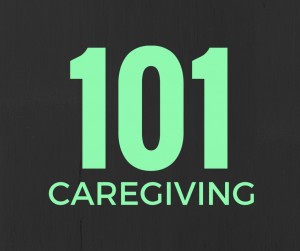Our Nurse Gina receives a lot of questions from families that recently started caring for aging family members. Their questions and concerns tend to focus on the best tools they  can apply to their situation to help ease the role of caregiver. Here are some of our answers.
can apply to their situation to help ease the role of caregiver. Here are some of our answers.
Ask Questions: To give your loved one the best care, you have to understand her needs. Set aside time to talk. Find out how she feels and what she wants you to do for her.
Don’t argue or insist your own opinion is best. Offer ideas, but listen to what she has to say. Show that you’ve heard by repeating back key points, like, “I understand that you want to do more for yourself.”
Create a Schedule: When you care for someone at home, days can feel long and unfocused. Give the person you’re caring for structure by making a schedule. Set times for meals, personal care, household chores, exercise, activities, and relaxation. Also set sleep and wake times to make sure both of you get enough rest.
When you make the schedule, think about your loved one’s needs. Consider how she organizes her day before you got involved.
Get Organized: Paperwork can pile up. To keep things running smoothly, put prescriptions, insurance info, doctor contacts, and health history in one place, like a multi-pocket folder. Keep track of appointments in a paper, computer, or smartphone calendar.
Set an alarm to remind you twice: a day or two, and a few hours ahead of time. Add your own appointments to the calendar to avoid schedule conflicts, and plan for days when you won’t be around to help.
Keep Track of Medicines: More than a third of older adults take five or more drugs to treat different conditions. All those meds can lead to mix-ups and mistakes. Go over the list with your loved one’s doctor and pharmacist to make sure every medication and dose is correct.
Store all medicines in one place for easy access. Use a pillbox to keep organized by day and time. Do an inventory every few months, and throw out any expired pills.
Simplify Meals: It takes time to prepare three meals a day. Planning ahead can help. Do all the week’s grocery shopping in one trip. Cook a big batch of meals and freeze them. Ask friends and family members to chip in. Set up a rotating schedule where each person shops for groceries, or brings over a whole cooked meal. When you cook, adapt dishes to your loved one’s taste as well as calorie and dietary needs, like low salt or extra B vitamins.
Make the Home Safe: We talk about this all the time. To avoid falls and injuries, there a few changes around the house that you can make to help your aging parents. Install grab bars and handrails in the bathroom to help prevent shower and tub slips. Add lights along hallways and stairways to lighten nighttime bathroom trips. Secure rugs with tape and pick up clutter. Store often-used items within reach so your loved one doesn’t have to stretch or climb. Buy a fall monitor to alert you, and call 911 if she does take a spill.
Recruit a Team: If you can’t handle all the care on your own, put together an on-call group of family members and friends who can step in and help. Give each person one or more tasks. They can help prepare meals or run errands. You can also hire someone to cook, clean, or handle daily personal and medical tasks, like helping your loved one dress, bathe, and take medicine. Your local agency on aging can help you find the right helper for each type of task. Utilize local companies, like FirstLight Home Care. They can lend you the necessary support you need for day-to-day care.
Encourage Self-Care: Help keep your loved one’s age, illness, or disability from taking a toll on her self-esteem. You can restore her feeling of control by letting her take as active a part as possible in her own care. Encourage her to make decisions and do tasks she can manage — like dressing or using the toilet. Let her help choose and plan activities. It will give her a sense of purpose, and make your job easier.
Do you have a caregiver tip that didn’t make our list? Share them in the comments below.
Media Source: Webmd.com and Mayclinic.org
